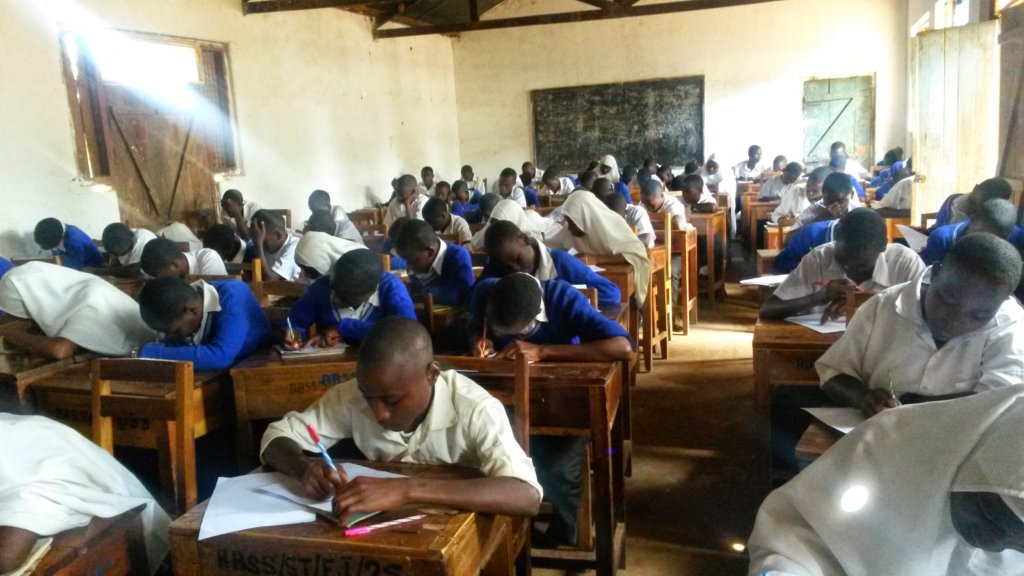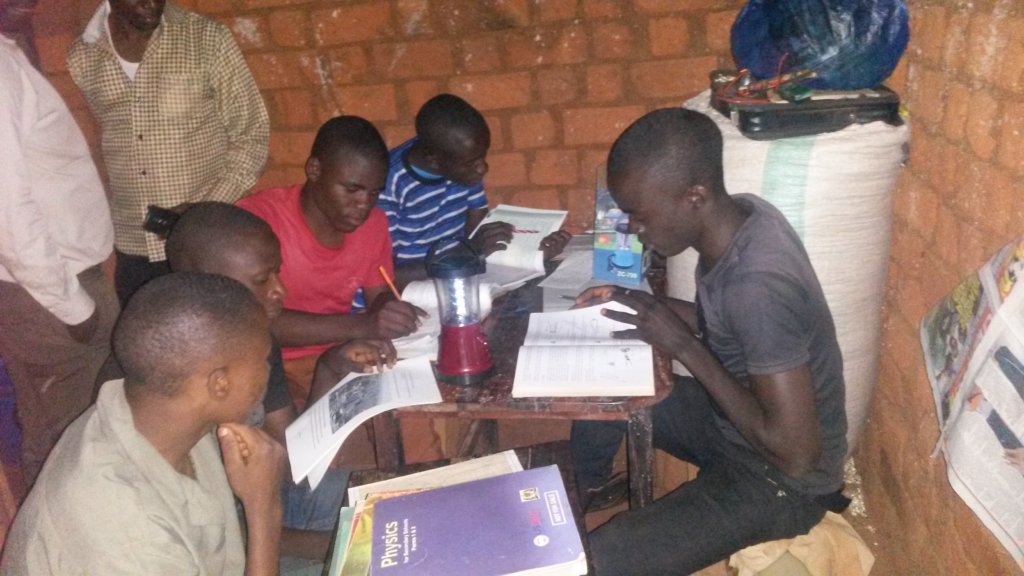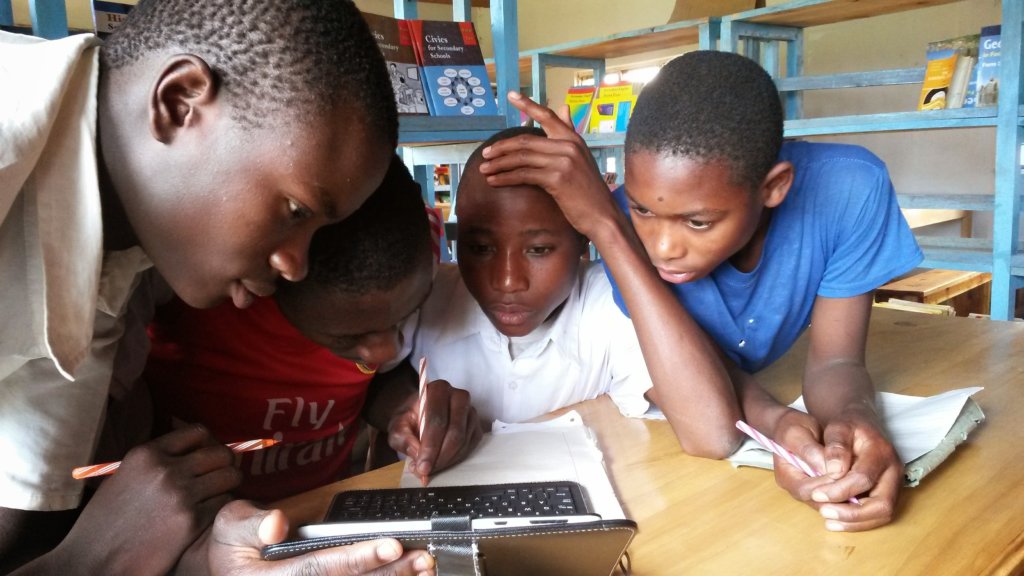By Janet Chapman | Campaigns Manager
I met Omar in Itongoitale, a small village an hour out of Shinyanga. He teaches Geography and History in the primary school here. Itongolitale has no electricity and the only water supply is from ponds shared with cattle. There is no mobile signal and only very occasional minibuses into town. Some people have radios but batteries are scarce, only five people have solar. So many people are entirely cut off from the outside world. They rarely have the means to leave the village. If there is a death, or other newsworthy event, in the next village, someone will walk the 15km to come and tell people face to face.
There are no computers in the village, and Omar has never used one. But they teach IT in the school – by drawing pictures of keyboards and hard drives on the blackboard.
Omar told me he liked reading, so I asked him to show me his books. He had three: a Swahili/English dictionary, a photocopy of a university text book on African History, and a Geography text book for 13 year olds. Yet Omar is very affluent by the standards of the village. He has a smart phone which he uses when he goes into town each month to pick up his salary.
I gave him a 16Gb sd card for his phone, with hundreds of ebooks in Swahili and English, plus health videos from Thare Machi on avoiding malaria and the need to boil drinking water. He promised to share this content in the school, and as we left he was proudly demonstrating it to a colleague and a group of excited children. A library on an SD card in a village without computers – cost: less than $5.
Masekelo secondary school in Shinyanga has many challenges: there's no electricity or water, so each pupil needs to collect 5 litres of water each day and carry it to school. Until Tanzania Development Trust gave them a grant in November there were insufficient desks or chairs and many had to sit on the dirt floor.
The government has decreed that every secondary school must have science laboratories by the end of February. No money was provided for this ; they should come from.parental contributions alone. When your parents are subsistence farmers this is challenging.
 The school has few text books or resources and a dire shortage of maths and science teachers, but the dedication of its headteacher and staff now mean they have the best results of any government school in the district.
The school has few text books or resources and a dire shortage of maths and science teachers, but the dedication of its headteacher and staff now mean they have the best results of any government school in the district.

I demonstrated this to the teachers and school board on the 5 donated tablets I'd brought, plus a couple of staff phones. They were astounded. "It's like a miracle", said the board chair. "Now we are in the 21st century", added a teacher. You can follow the progress of this project, and the school in general, on their Facebook Page.
Links:
Project reports on GlobalGiving are posted directly to globalgiving.org by Project Leaders as they are completed, generally every 3-4 months. To protect the integrity of these documents, GlobalGiving does not alter them; therefore you may find some language or formatting issues.
If you donate to this project or have donated to this project, you can receive an email when this project posts a report. You can also subscribe for reports without donating.
Support this important cause by creating a personalized fundraising page.
Start a Fundraiser

